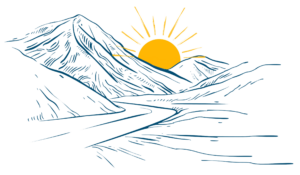Quakers and Fasting
“Fasting was commonly practiced [by Quakers] as a spiritual aid in the mid seventeenth century. Hogwill fasted when in prison in Appleby, […] Nayler had been fasting prior to his “sign” in Bristol, and Farnworth issued a challenge to a fast in the course of a debate at Cambridge.”
— Rosemary Moore, 2000
The Light in Their Consciences: The Early Quakers in Britain 1646-1666

Today’s Invitation
If it is medically safe for you to do so (see this guide), choose a day this month to fast. The “rules” are up to you (eating before sunrise and after sunset, drinking, abstaining only from certain foods).
Use mealtimes for devotional reading, spiritual journaling, prayer, silent worship, or meditative creativity (singing, dancing, drawing).

Query of the Week
How can spiritual discipline enrich your life?
What areas of spiritual practice would you like to improve on? How can you practice patience with yourself as you move toward your goals incrementally?


